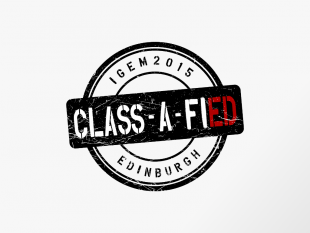
iGEM 2015 team Edinburgh
Edinburgh’s iGEM project was to create a cell-free, paper based biosensor, which could be used in testing purity of different substances. As the main case for the project they chose the detection of the purity of heroin, intended to reduce deaths of drug addicts due to drug impurities. Their application scenario explored three hypothetical situations arising from the implementation of the biosensor: false positive or negative results, obstacles in the implementation due to legal constraints in selected countries, and a case where the biosensor could not compete on the free market due to economical constrains. Their technomoral vignette is a manuscript for a theatre play, exploring moral considerations involved with the implementation of device, namely a situation where a drug dealer uses the device for their own ends. In addition they wrote an essay using a utilitarian framework, addressing the question of whether the biosensor is immoral because it condones drug use. The team run a series of activities supporting the design of the biosensor with stakeholders and the public, such as interviews with politicians, ethicists, drug users and healthcare staff working with drug users. They also held a public panel discussion on issue.
The team won the iGEM award of Best Integrated Human Practices (undergraduate category)
